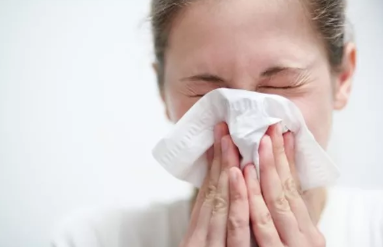The Importance of Vaccines

(Google Common License) Everyone is getting sick, protect yourself by getting vaccines!
The weather has changed very rapidly in the last few weeks. It seems like one day it was warm and the next day it was freezing cold. Along with this comes the dreaded cold season. The reason why people get colds when the temperature changes are that this temperature drop allows a different group of viruses to survive and thrive which get people sick. According to Dr. Benjamin Kaplan, an internal medicine physician at Orlando Health in Florida, “Many studies show that rhinovirus and coronavirus are the two main agents of the common cold. Interestingly, they flourish in cooler weather”(LiveScience.com). Another common virus that spreads easier in the cold is influenza, which is why most people get the flu in the winter.
Against common belief, taking supplements like zinc, vitamin E and C, and echinacea haven’t been shown to prevent the common cold in double-blind clinical trials(Weather.com). What does make a difference, however, is vaccines. New vaccines are created and released every year to keep up with the flu virus’ changes and adaptations. Federal health experts determine which three strains of the flu that will be the most likely to survive and they manufacture the appropriate vaccines to prevent them. The flu shot works by triggering your immune system’s response. Your body recognizes the flu virus as a foreign invader and produces antibodies. These antibodies help the body fight off the types of flu that are present in the vaccine because the next time your body comes in contact with the flu your immune system knows how to fight it off with the correct antibodies. It takes about two weeks for the vaccine to take its full effect.
It’s recommended by the Centers for Disease Control that everyone older than six months old should be vaccinated against the flu. Some individuals have a higher risk of getting the flu, including pregnant women, children between six months and five years of age, people over fifty, anyone with chronic medical conditions, and people whose body mass index is forty or higher. People with the following medical conditions are also at a higher risk: asthma, heart or lung problems, HIV/AIDS, cancer, metabolic diseases, neurological conditions, blood conditions, obesity, and kidney or liver disease. It’s important that these people are vaccinated. The only people who shouldn’t get a flu shot are people who’ve had a previous bad reaction, people with an egg or mercury allergy, people who currently have a fever, and people with Guillain-Barre syndrome.
Around one to two percent of parents don’t vaccinate their children, and ten to twenty percent refuse certain vaccinations. These children are being put at risk of serious diseases that are easily preventable. The biggest example of this is the 2017 measles outbreak that spread from southern California to twenty-five states. One reason for why some parents are reluctant to vaccinate their kids is that they don’t care about these diseases; since we don’t see them very often they think that it’s not important to be vaccinated against them. Parents also get poor information from the Internet. In 1998, for example, a researcher published a paper connecting the measles vaccine to autism. People believed it and were terrified, even though there was no biological explanation and very little data to support this claim(BerkeleyWellness.com). It’s very hard to get rid of this fear in people. Even though there have been hundreds of millions of dollars spent on studies to prove that these fears are ungrounded, people choose to ignore this evidence and put their children at risk for no reason.
